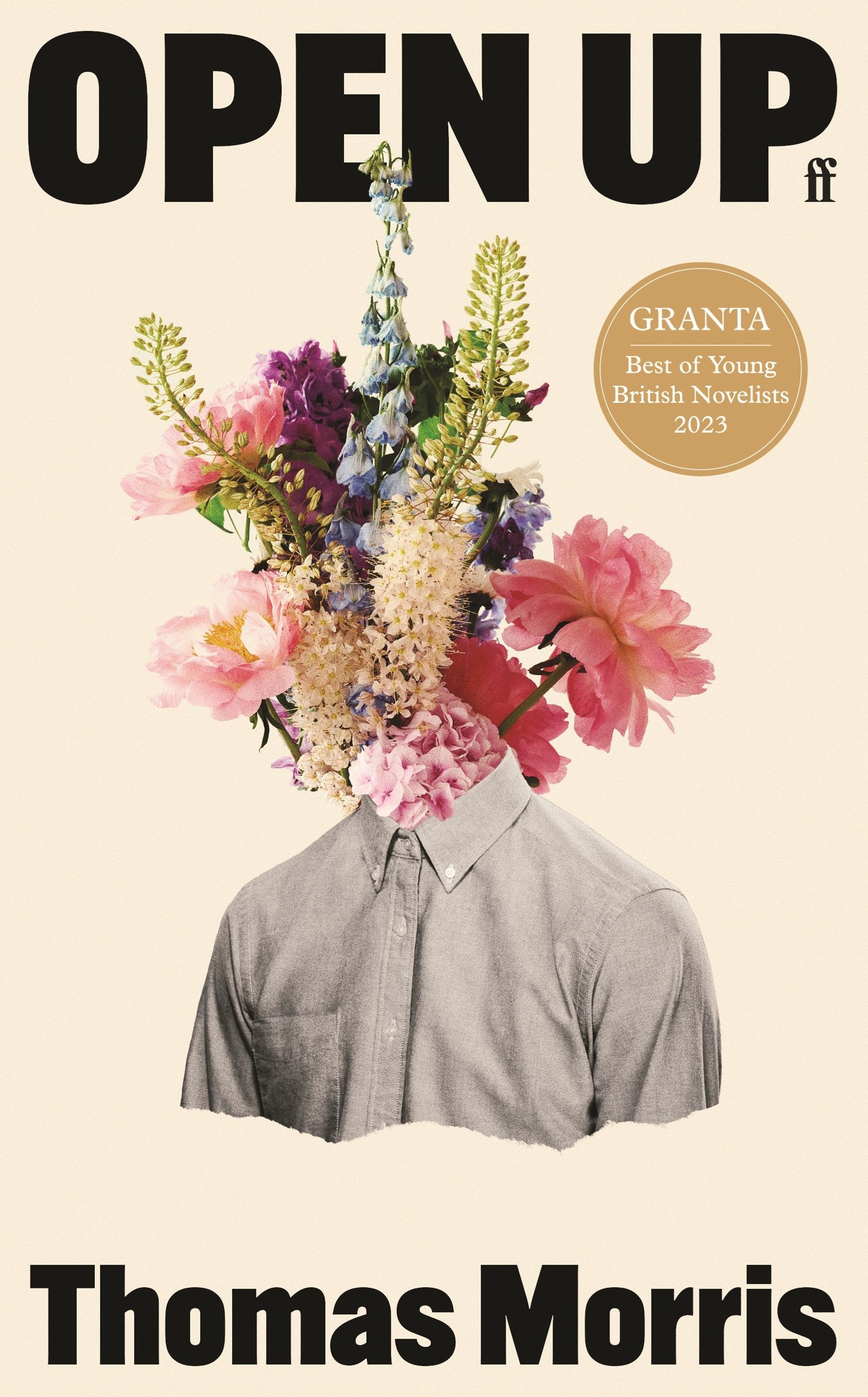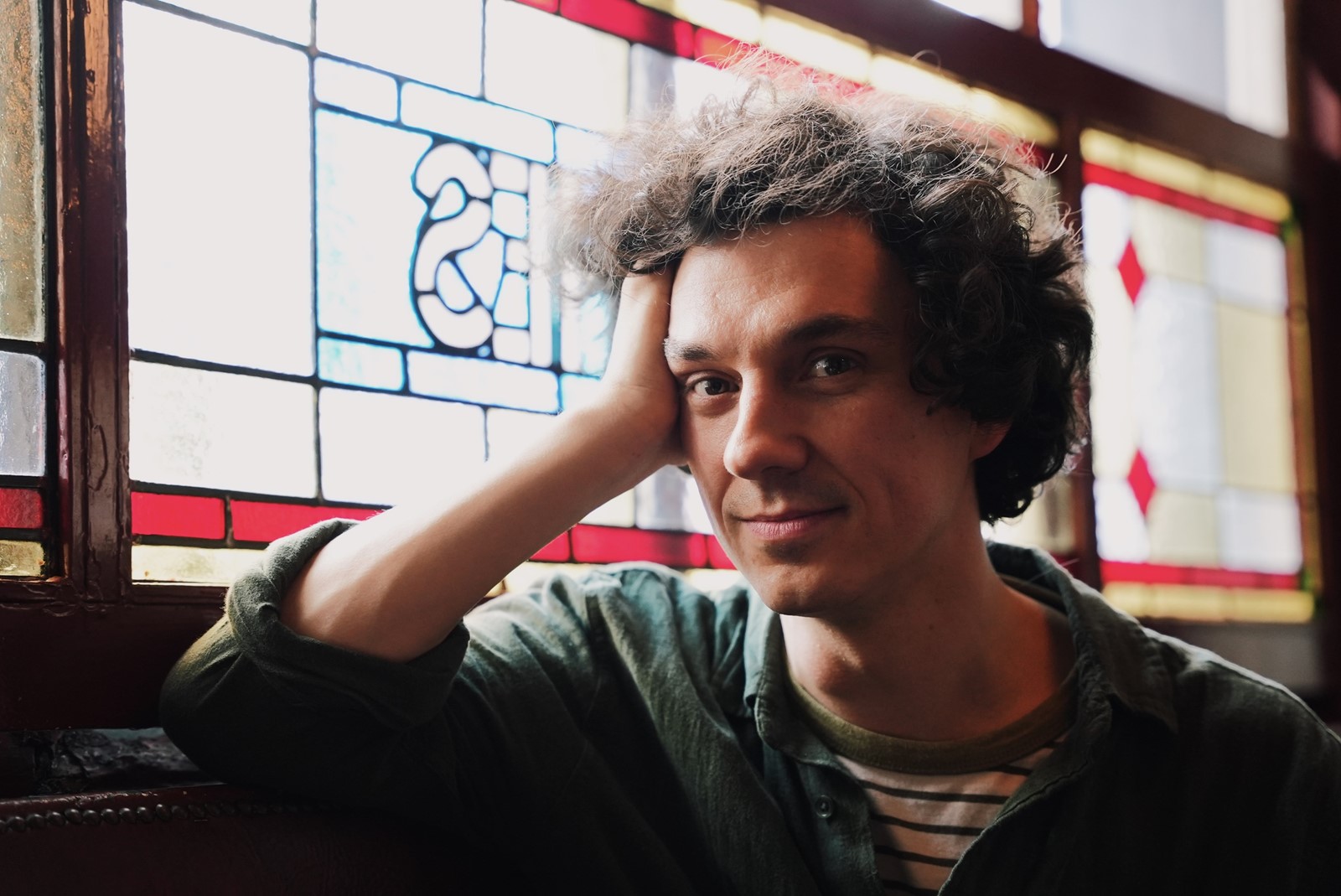When Thomas Morris’s first short story collection We Don’t Know What We’re Doing was published in 2015, it felt like a new literary star wasn’t just born, he had arrived fully formed. Hailed by the likes of Colm Tóibín and Ali Smith, the latter of whom called the collection “one of the most satisfying [she’d] read in years”, it brought Morris one step closer to the spotlight he’s often shied away from.
An editor at Ireland’s premier literary journal The Stinging Fly, Morris has been an IYKYK figure in the British and Irish literary scene for over a decade. While the magazine has been the sandbox that has nurtured practically all of the nation’s biggest literary names, from Sally Rooney to Nicole Flattery and Colin Barrett, Morris has stayed relatively behind the scenes and the journal’s constant editor.
But, last August, that all changed when Morris discovered he’d been selected as one of Granta’s Best Young British Novelists, a campaign that the literary journal reignites every ten years in order to take stock of who is and who will be the literary superstars of the next decade.
AnOther caught up with the author as his latest suite of stories, Open Up, is released. It’s a subtle collection, with each story as meticulously constructed as a Swiss watch; one story in particular, the seahorse-led tale of a single father and his boys, Aberkariad is a standout not just of the collection, but of the short story genre in general.

Barry Pierce: I just have to get it out of the way immediately. I think Aberkariad is one of the greatest short stories I’ve ever read. Where did the idea of the story come from?
Tom Morris: Well, that’s very reassuring. I spent so long writing these stories and, often, I had no idea what I was doing. So to actually be on the other side of it and for someone to say “it worked!” I’m like, thank fuck for that!
I didn’t go in knowing what the story would be about. I went in knowing about as much as anyone else knows about seahorses, which is that the male gets pregnant. So I decided that’s where I’d begin. I think there was something refreshing about reversing the dynamic that I usually write about, where there’s a mother and children and the father’s gone. For ages I had no story, just the seahorses and their dad, but then I came across this one article that said that males stick to one territory and females stick to another and they meet in this third place to mate. And suddenly then I had ‘aberkariad’, which is made-up Welsh word, ‘aber’ meaning where the waters meet and ‘kariad’ is just ‘cariad’, which means love, but with a ‘k’.
BP: How long does it take you to write a story?
TM: Abarkaraid took me two years to write.
BP: Oh, wow.
TM: I mean, I was doing other things too. Birthday Teeth was two years, Passenger was four years. The first story came in a month but I’d been working on something similar for a couple of years. Writing is where I go to think, it’s where I go to feel. Generally, in my everyday life, I don’t know how I feel. It takes me about ten years for things to digest. My emotional metabolism is slow. [Laughs.].
BP: So when you’re writing, are you drafting and redrafting or are you slowly piecing it all together?
TM: So, Passenger, for example, and I’m not exaggerating, I’ve got the files to prove it – 78 drafts.
“When I get to the end of a story and I feel some kind of tingle or something in my arms or my chest, because I’m so driven by feeling in my work, it means I’ve hit something real for myself” – Thomas Morris
BP: Oh good lord.
TM: From start to finish I had something down in three weeks. It began with this idea of whenever I have to have to catch a flight and I’m on the coach to the airport I get really fucking anxious. And I was like, I’ll just write a story, start to finish, it’s two friends on a bus, beat by beat. And I finished and I was like, hmm that’s not quite it. OK, what if I change that to his girlfriend? Nah, that’s not quite it. It became about forming a thread of the anxiety, like, where is that anxiety coming from?
BP: So how do you know when a story is done?
TM: It’s genuinely like a bodily feeling for me. When I get to the end of a story and I feel some kind of tingle or something in my arms or my chest, because I’m so driven by feeling in my work, it means I’ve hit something real for myself.
BP: A lot of your stories have these, how do I say this, meek male characters …
TM: Milquetoast is what one friend called them.
BP: And they fit into this current fashion for stories of masculinity now, which are often about men having feelings, and the stories often precariously recycle the language of therapy. You steer clear of all that, however.
TM: I think it goes back to never knowing what the story is when I begin writing. I’m not hitting those tropes because I never begin with the idea that I’m writing the ’great masculinity’ short story.
“Football is this crucible in which we [men] are allowed to emote” – Thomas Morris
BP: Linked to that too is the thread of football throughout your stories.
TM: Well, I love football. I wanted to be a footballer as a kid, I was pretty good, I had trials, and I feel a lot of men say “I had trials!” but I just wasn’t good enough. And there’s a sense of grieving still for that. I remember reading Talking to Women by Nell Dunn and in it, she just sits down with her pals and talks. And they just talk so openly, so vividly, and I realised as I read it that I don’t have this access to my inner life, and my friendship with my male friends, we don’t talk like this with each other. So I thought, what do we do? Well, we watch football.
I remember one time I had a break-up in my early twenties and a friend came and picked me up and took me to his house. We played FIFA for four hours and then he took me home again and was like, “alright?” and I was like “alright” and that was it. That was support. Like, in the last couple of years, me and my friends go to watch Wales and when they score we’re hugging each other, kissing each other, and in what other world are me and my male friends ever doing that? Football is this crucible in which we are allowed to emote.
BP: You were recently announced as one of Granta’s Best Young British Novelists, despite not having published a novel nor really being British. How has that been?
TM: I started laughing when I got the email. Like, it is amazing to be on that list, it’s amazing to be deemed worthy by these authors but it was eight months of not being able to tell anyone. So there was this stress of this thing approaching and not knowing what it was going to look like. Thankfully, I wasn’t invited to do as much press as others were.
I don’t identify as a novelist and I don’t identify as British. I think age restrictions on prizes can be strange, I don’t think Granta still needs the age restriction. So there was that uneasiness with it but also, at the same time, it was really cool.
The words Britain and British always loomed large in my head growing up in Wales and going to a Welsh language school. When I think back to my childhood, being a child of a single parent, growing up in Tory Britain, where single mothers were the enemy of the state and we were so poor and things were so difficult, and it didn’t actually have to be that way. That was a choice by the British state. But despite my wanting an independent Wales, it is part of Britain, for now, and my stories are then stories of Britain. And if I’m not there, that story isn’t going to be.
Open Up by Thomas Morris is published by Faber and is out now.
